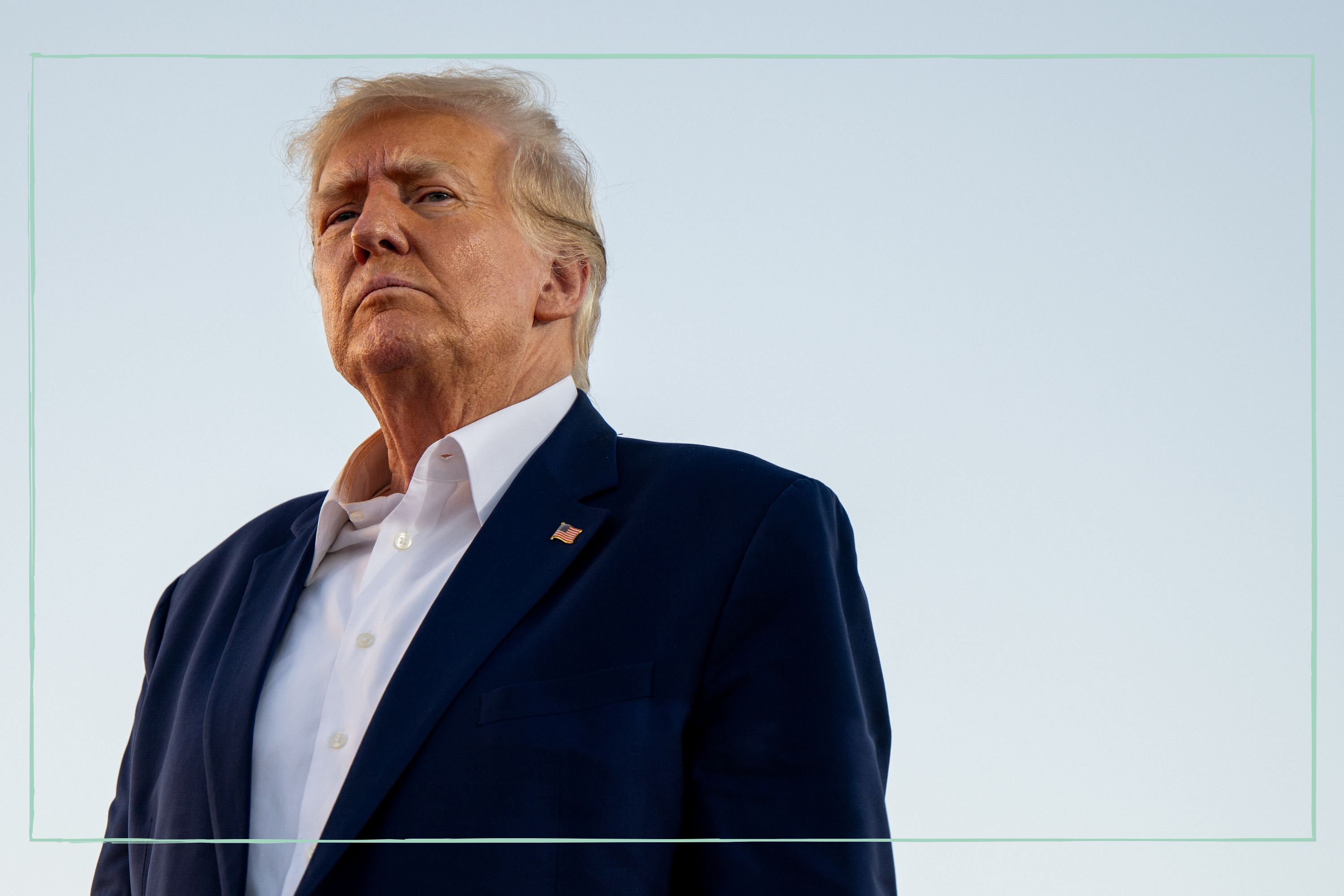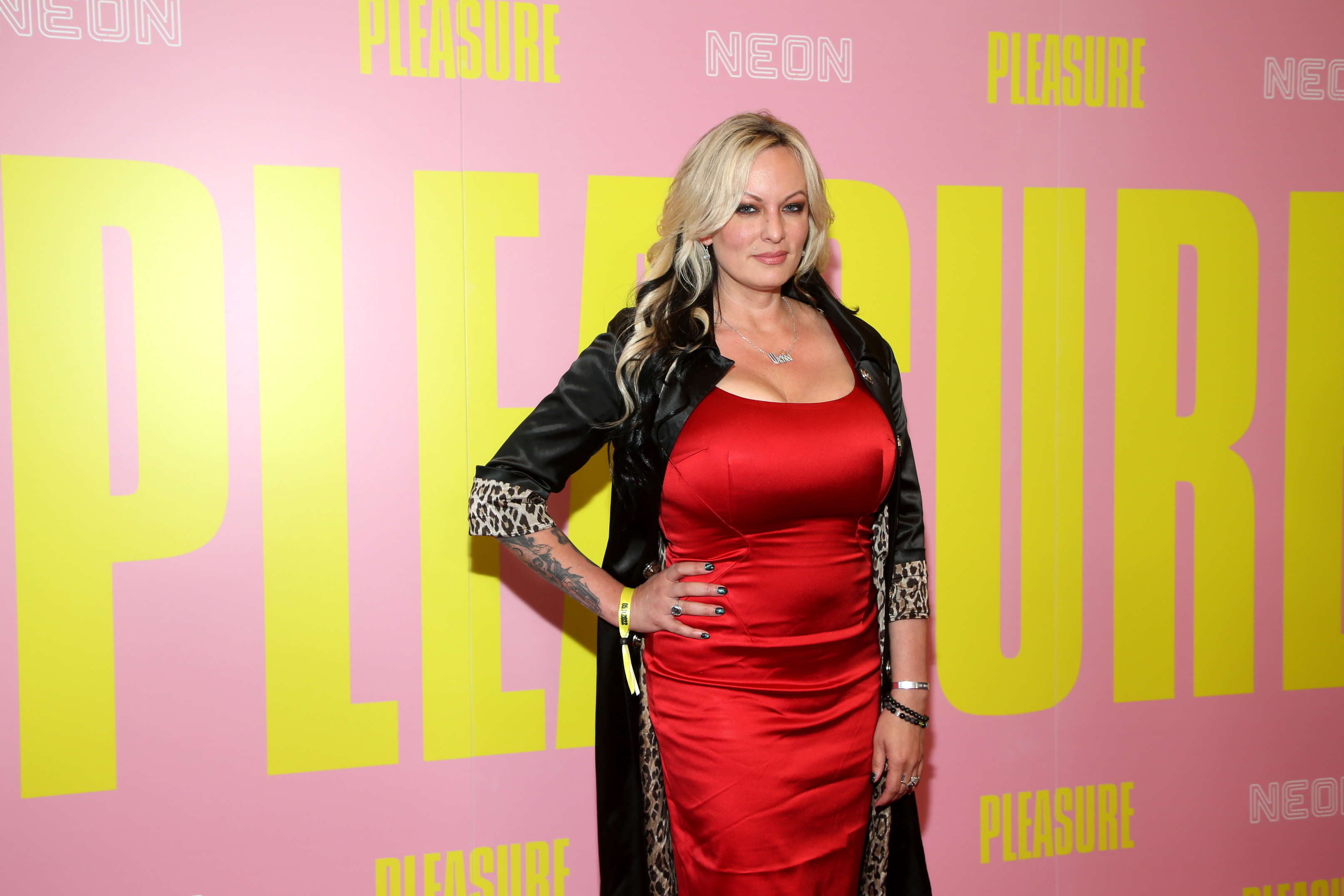Will Trump go to jail and has he been arrested? His indictment explained
Donald Trump has been indicted - but what does it mean?


Parenting advice, hot topics, best buys and family finance tips delivered straight to your inbox.
You are now subscribed
Your newsletter sign-up was successful
Donald Trump is the first former US president to face criminal charges - leaving many wondering if he will go to jail.
On Thursday 30 March, a New York grand jury voted to indict former President Donald Trump. It marks the first time a former president has been charged criminally in American history, and has thrown up many questions - such as will Trump go to jail, has he been arrested and what exactly did Donald Trump do?
After a Manhattan grand jury determined there was enough evidence to proceed with a case against Trump, the charges were made public and the former President made a court appearance. Following his 'not guilty' plea, we explain what could happen next - and whether he can still run for president.
Will Trump go to jail?
While we don't know for certain just yet, in theory, yes, Trump could go to jail. But this will only happen if he's convicted - and even then it will be up to the judge to decide the sentence.
He's charged with falsifying business records, which in New York on its own is a misdemeanour punishable by no more than one year in prison. However, falsifying records to cover up a crime - such as election fraud - is a felony and punishable by up to four years in prison.
That said, to secure a conviction of a felony prosecutors would have to prove that records were falsified with the intention of committing or concealing a second crime.
In addition, if Trump is convicted it would be a first offence for a non-violent crime, making the prospect of jail less likely. At 76, Trump's age might also provide grounds for a compassionate sentence.
Parenting advice, hot topics, best buys and family finance tips delivered straight to your inbox.
Has Trump been arrested?
Yes, Trump has been arrested. The former president was formally arrested following his arrival at a Manhattan Courthouse on Tuesday 4 April, where he was fingerprinted and processed.
He entered a plea of 'not guilty' during his arraignment - the formal reading of the criminal charging document in the presence of the defendant - which followed his arrest.
He then flew back to his Mar-a-Lago resort in Florida, where he held an event with his supporters. He said at the event, "The only crime that I have committed is to fearlessly defend our nation from those who seek to destroy it."
The judge overseeing the case has set the next in-person hearing for December 4, which comes just weeks before the start of the 2024 Republican presidential primary calendar.
What did Donald Trump do?
Trump is accused of 34 counts of falsifying business records in order to conceal a series of alleged hush money payments - including a $130,000 (£106,000) payment to porn star Stormy Daniels in 2016.
At the time, Trump was running for president and Daniels contacted media outlets offering to sell her account of what she said was an adulterous affair she had with Trump in 2006 - claims which Trump denies.

As a result, Trump's attorney at the time, Michael Cohen, paid $130,000 to Daniels to keep quiet. While this is not illegal, when Trump paid the money back to Cohen the record for the payment says it was for legal fees.
Prosecutors say this is falsifying business records, which is a misdemeanour (a criminal offence) in New York. In an accompanying statement of facts filed with the court, prosecutors allege that Mr Trump "repeatedly and fraudulently falsified New York business records to conceal criminal conduct that hid damaging information from the voting public during the 2016 presidential election."
Trump has pleaded 'not guilty' to the charges.
What does indictment mean?
An indictment is a formal charge of a crime, and differs from an arrest because the person charged is not taken into custody. On Thursday 30 March, the grand jury decided to bring charges against Trump.
In this process, the grand jury, which in New York is composed of 23 members of the public, hears evidence from witnesses presented by prosecutors, who then decide whether to ask the jurors to vote on an indictment.
The grand jury process is secret, and the indictment is generally not made public until it is filed in court or until the defendant makes their first court appearance.
A majority of jurors must vote to indict the person for charges to be brought.
Glenn Kirschner, a former prosecutor, previously told USA TODAY that authorities often negotiate the surrender of a high-profile defendant - like Trump - to avoid the spectacle of a "perp walk", in which the person is walked past the media as they enter the courthouse. Instead, Trump is likely to be given a private entrance.
Can you run for president from jail?
Yes, Trump could still run for President if he is in jail or prison. The US Constitution doesn't mention anything about pending criminal charges or a conviction preventing a person from entering office.
In fact, there is nothing in US law that prevents a candidate who is found guilty of a crime from serving as president - even if they are governing from prison.
Therefore, an indictment or even a criminal conviction would not necessarily prevent Trump from continuing his presidential campaign - and he has indicated that he plans to go ahead with it regardless of the outcome.
Video of the Week

Ellie is GoodtoKnow’s Family News Editor and covers all the latest trends in the parenting world - from relationship advice and baby names to wellbeing and self-care ideas for busy mums. Ellie is also an NCTJ-qualified journalist and has a distinction in MA Magazine Journalism from Nottingham Trent University and a first-class degree in Journalism from Cardiff University. Previously, Ellie has worked with BBC Good Food, The Big Issue, and the Nottingham Post, as well as freelancing as an arts and entertainment writer alongside her studies. When she’s not got her nose in a book, you’ll probably find Ellie jogging around her local park, indulging in an insta-worthy restaurant, or watching Netflix’s newest true crime documentary.